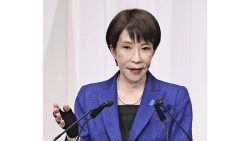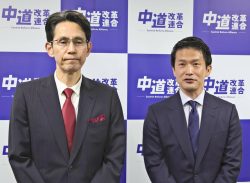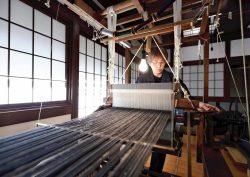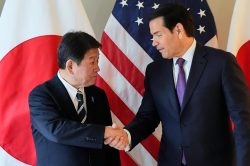Japanese Govt Aims to Include Minicars in Cars to Be Electric Vehicles by Mid-2030s
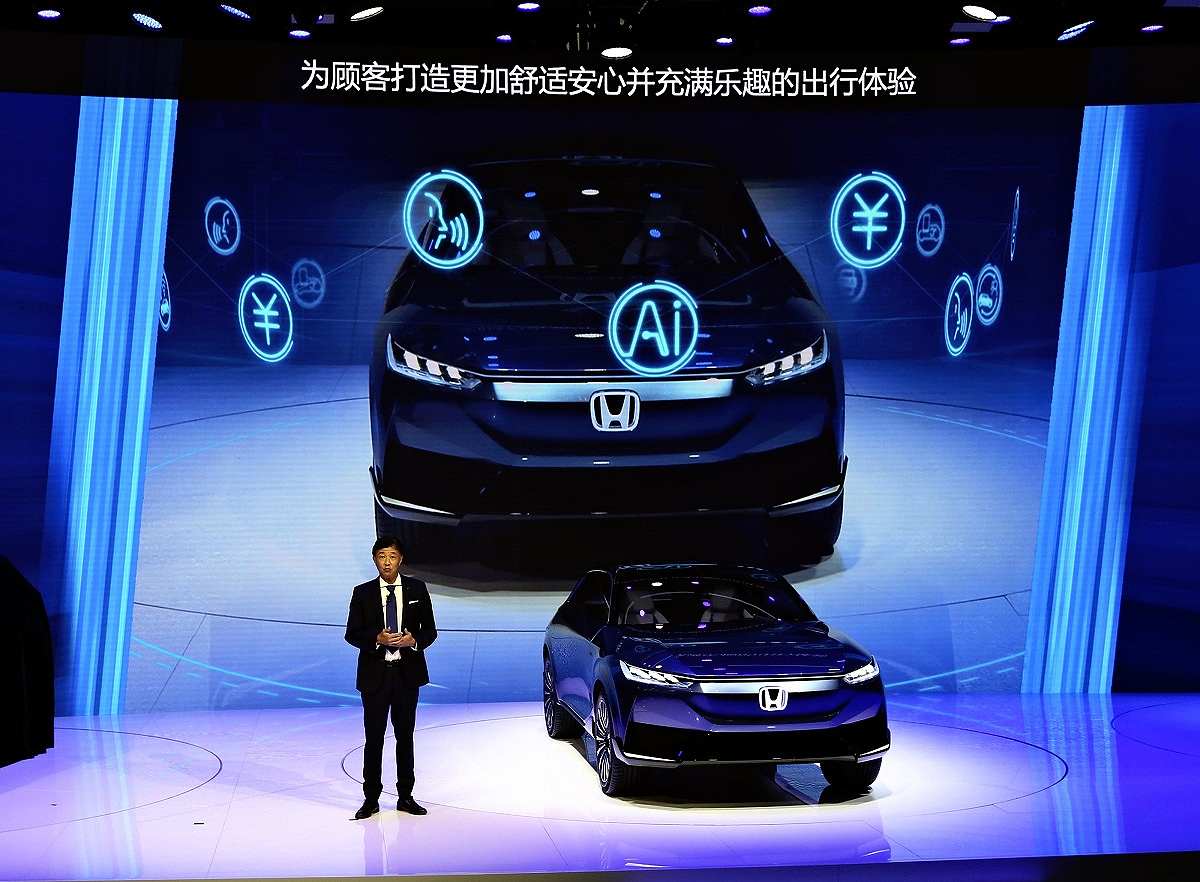
The prototype of the Honda SUV e:concept unveiled at a Beijing auto show in Beijing on Sept. 26
17:49 JST, December 24, 2020
To help realize a decarbonized society, the government will include minicars in their goal to be reached by the mid-2030s of having the cars sold domestically be electric or hybrid vehicles, sources said Tuesday.
The goal is a priority area in the government’s plans for the automobile industry and storage batteries for electric vehicles, to achieve net-zero emissions — a plan which will be drawn up by the end of the year.
The government will also aim to lower costs when purchasing, using and maintaining electric or hybrid vehicles to the level of of gasoline-powered vehicles by 2030.
They are believed to have decided the electrification of 1.47 million minicars — or 34% of the about 4.3 million new passenger cars sold in the nation in 2019 — will expedite work to achieve net-zero emissions.
The government also plans to clarify by the summer of 2021 when trucks and other commercial vehicles, which emit more exhaust than passenger cars, should be converted to electric or hybrid vehicles.
Minicars, which are cheaper than passenger cars, provide transportation especially for people living in areas with poor public transportation systems in place.
Since a storage battery costs nearly ¥1 million, the introduction of more electric vehicles is feared to raise the prices of vehicles, which creates a bigger burden for consumers. The government will therefore work to lower storage battery-related costs, which account for 30% of EV prices, while promoting the electrification of minicars and other vehicles. Specifically, the government will work to quickly improve the domestic production system by providing subsidies and technical support to manufacturers.
The government also plans to hasten the development of innovative batteries with greater charging capacity that can be made smaller and lighter compared to conventional storage batteries. By doing so, it hopes to increase the share of Japanese storage batteries in future electric vehicle markets. Lowered production costs are expected to reduce vehicle prices.
There is an issue of carbon dioxide being emitted in the process of producing and disposing of EVs. The government aims to eliminate the emission to achieve decarbonization of the entire automobile sector by 2050. It will thus include in the action plan the intention to establish relevant rules.
In addition, the government will support the development of next-generation fuel using CO2 emitted from factories. It will also take comprehensive measures to pursue deregulations to promote the use of electric or hybrid vehicles, the expansion of charging stations and the promotion of investment. It also plans to help small and midsize companies, such as parts makers, to change their lines of business.
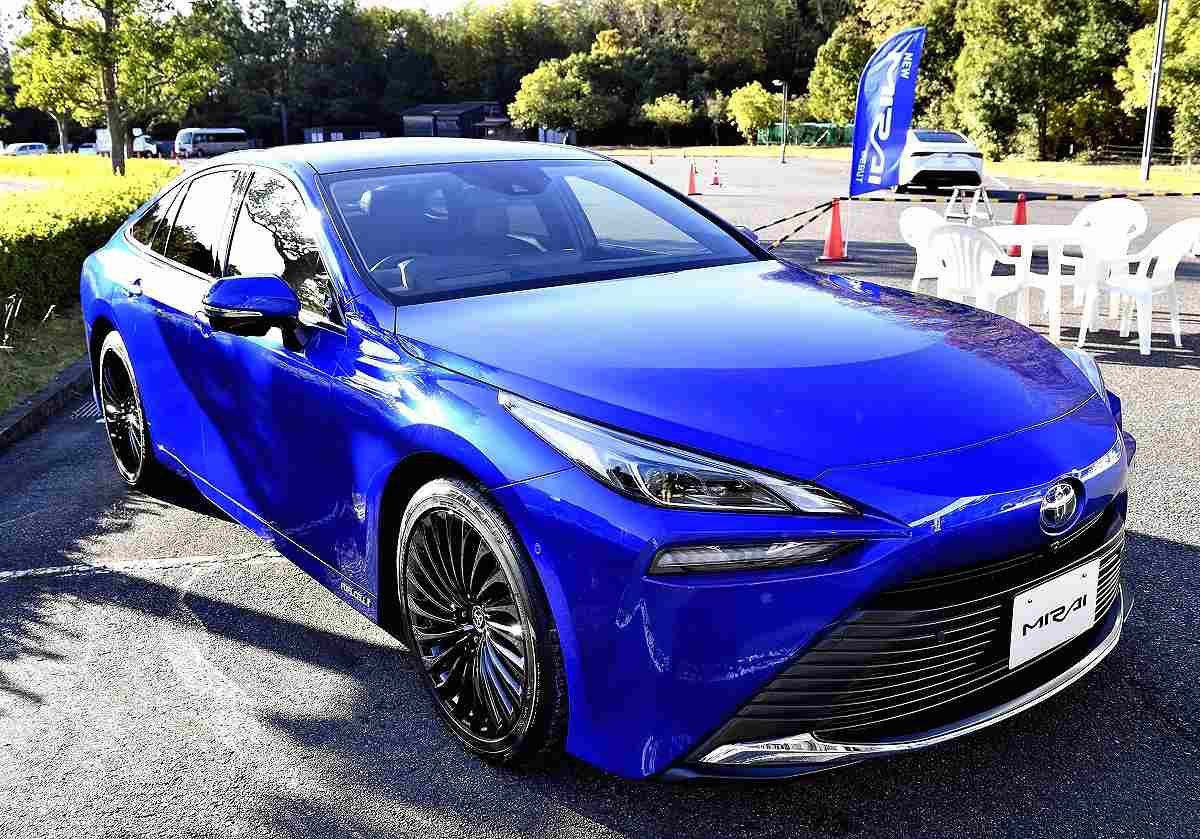
Toyota Motor Corp.’s New Mirai fuel cell vehicle is photographed on Dec. 4 in Toyota, Aichi Prefecture.
Top Articles in Politics
-

LDP Wins Historic Landslide Victory
-

LDP Wins Landslide Victory, Secures Single-party Majority; Ruling Coalition with JIP Poised to Secure Over 300 seats (UPDATE 1)
-

Japan Tourism Agency Calls for Strengthening Measures Against Overtourism
-

CRA Leadership Election Will Center on Party Rebuilding; Lower House Defeat Leaves Divisions among Former CDPJ, Komeito Members
-

Voters Using AI to Choose Candidates in Japan’s Upcoming General Election; ChatGPT, Other AI Services Found Providing Incorrect Information
JN ACCESS RANKING
-

Japan Institute to Use Domestic Commercial Optical Lattice Clock to Set Japan Standard Time
-

Israeli Ambassador to Japan Speaks about Japan’s Role in the Reconstruction of Gaza
-

Man Infected with Measles May Have Come in Contact with Many People in Tokyo, Went to Store, Restaurant Around When Symptoms Emerged
-

China Eyes Rare Earth Foothold in Malaysia to Maintain Dominance, Counter Japan, U.S.
-

Prudential Life Insurance Plans to Fully Compensate for Damages Caused by Fraudulent Actions Without Waiting for Third-Party Committee Review




